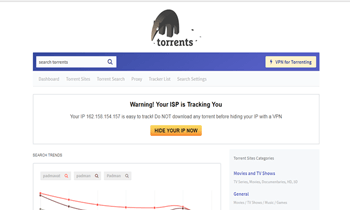Patientory Connecting Electronic Medical Records through Blockchain? A complete review by Alex. B. HealChain
Contents
Patientory users create an individual profile on the company’s mobile app. Users’ medical information is stored in the secure, HIPAA-compliant blockchain platform, which then allows them to connect with other patients who have similar health issues or concerns, their physicians and their care team. Patients can then actively learn more about their overall health and wellbeing. In addition, patient and clinician users can engage Patientory’s platform to better manage the patient’s care across multiple teams, both inside and outside of the hospital. Patientory’s technology is compatible with a number of EHR systems, including Epic, Cerner, Allscripts and Meditech.

“We came up with Patientory using aspects of the industry that we knew would make the patient experience more positive and help physicians make their population more manageable.” We’re revolutionizing the way healthcare stakeholders and patients interact and gain access to information, cutting out all layers and processes that currently are stumbling blocks in care coordination. Participated in a roundtable with the Office of Science and Technology Policy in providing feedback for policy geared toward creating patient-centric secure, decentralized networks for patient engagement in research and population health.
PTOY & Patientory stiftung
Even if one node on the blockchain was completely compromised, the attacker would only receive one random bit of encrypted information about a patient. Using a decentralized system instead of a centralized server makes attacks unlikely. If your medical data is kept in your local physician’s office computer data, the answer is that the doctor both owns and controls it. And in that case, none of your records are “comprehensive” or immediately accessible to providers outside of your doctor’s office. Siloed data across both the $14 billion population health management and $10 trillion global health management markets. We centralize all your medical data so you can easily manage and track your healthcare.

To empower people with actionable data-driven insights for improved health outcomes and well-being. HealChain is the organization to learn and innovate for a healthier future in the blockchain ecosystem. HIPAA compliance is on the roadmap; however, as it is a basic requirement of any EMR handlers, until we’ve seen proof of compliancy it is hard to imagine a future. Lastly, with new privacy laws in Europe patients must have the ability to delete their data. By design, such a feat is impossible on the blockchain, therefore having a hybrid solution combines the best of both worlds. Now, imagine you suffer a heart attack or stroke while visiting relatives out of town.
But in medicine, even though it’s your life and your health, your information belongs to your care provider. The information is decentralized and currently stored in the largest healthcare information exchange network, the PTOYMatrix powered by blockchain technology. Patientory uses blockchain architecture to decentralize health data, making it more secure and less susceptible to data breaches. Patientory is on a mission to democratize the world’s health and medical data by empowering users with ownership and actionable insights from their health data, incentivizing them to take control of their health outcomes. Securely locate your medical records data safely stored on the PTOYMatrix blockchain network by using your specific credentials from your provider’s patient portal and assign it to your Patientory private key.
We want to thank each of you for your support and participation with us in bringing this App into being. As we can read in their whitepaper, it seems that there is a need for their own blockchain https://cryptolisting.org/ & token. The price now is purely speculative as the token is useless without a working product. I like their idea on how to use their token, and I would also love to see a buyback option added.
In their whitepaper, Patientory addresses some of the details of how they conform to the three main requirements of HIPAA; The Privacy Rule, Security Rule and the Cloud Computing Guidelines. For more information you can see their whitepaper with the link below in the Resources Section. 4 members, 2 board members – I can’t imagine such a big problem being tackled by a team this size. Most of the staff have been around for less than 6 months, a major issue for any startup. That extensive of a turnover for a young company is disconcerting to say the least.
Get invite token for the PTOYNet node storage provider setup
Token holders who are drivers will earn extra carbon credits through more charges. By providing an effortless charging experience and the ability to earn carbon credits for drivers, C+Charge is creating a new payment charging model that is good for the planet, good for society, and good for business. C+Charge – Crypto Fueled – Electric Charged.Upcoming RobotEra RobotEra building a sandbox-like planet-rebuilding metaverse. You will become a robot, managing your own land and participating in the creation of the world. Here, create everything you can imagine and start a new era with other robots. Robotera provides a shared multiverse that connects with other worlds, opening theme parks, concerts, museums, and more.

To help hospitals reduce readmission rates, Patientory better manages the post-discharge care of patients. “Patientory gives the patient and caregiver an application on their phone that will help them better implement the post-operative procedure guidelines that the hospital is going to be creating,” says Mr. DiMonda. The need to protect patients’ medical and personal information is clear. On average, one health data breach occurred per day in 2016, according to analysis from the Protenus Breach Barometer.
Tracking Health Score Statistics
Create, share, operate, explore, and trade in RobotEra with the numerous NFT communities.Upcoming Collectible Collectible is the exclusive NFT + Physical Item online platform out there. With different unannounced drops happening every week ranging from sport memorabilia to long century old art brought back to life through our NFT creating process making it relevant again. Patients and providers alike need a safe way to track medical history and coordinate care without fear of data breaches.
Unlike EHRs, which are vulnerable to hacks, Patientory utilizes blockchain technology — a permanent record of online exchanges. Blockchain is managed by distributing nodes, each of which contains a copy of the file and requires users to agree to changes. What’s equally concerning is the team’s experience in blockchain and the healthcare industry… or lack thereof that is. Patientory’s enterprise platform, Neith, allows healthcare stakeholders to create reports and predictive analytics around population health.
- It is moderated by users and is in no way affiliated with or endorsed by Patientory management or employees.
- Chrissa proceeded to create Patientory in 2015 which is now based in Atlanta.
- Patientory is a population health data management and analytics company.
- Most of the staff have been around for less than 6 months, a major issue for any startup.
- Now, imagine you suffer a heart attack or stroke while visiting relatives out of town.
C+Charge believes that the rapid transition to electric mobility is essential to building a sustainable future. Our mission is to create a platform utilizing blockchain technology that will promote the movement of all people and goods on electricity. We endeavour to build the world’s leading EV charging crypto payment patientory roadmap network by investing in, deploying, and partnering with world-class EV charging solutions worldwide. C+Charge users are allocated individual electronic wallets, which are accessed through the C+Charge app. C+Charge’s payment system is powered by the C+Charge utility token that is utilized to pay for each charge.
Get the Medium app
Patientory aggregates all of a patient’s health data, from clinical records to wearables. By combining clinical data like patient records and test results with everyday data like physical activity and sleep, Patientory gives users a fuller view of their overall health. 66% of US citizens have concerns when health data is managed electronically and 75% of hospitals experience inefficiencies in cost and management due to the complexity of care. It’s hard to imagine any consumer relinquishing this much control of their finances to a broker or banker.
As strange as it sounds, even doctors in other hospitals and emergency departments, using the same EHR system, usually can’t see your data without undergoing several time-consuming steps. There simply is no convenient way for you to “hand over” your records to other doctors who might be caring for you. Providers cannot see the bigger picture due to the lack of interoperability and access across current management systems; they cannot create efficient care plans for patients without access to all patient data.
Patientory aims to empower patients, clinicians and healthcare organizations to safely access, store and transfer information. As stated in my last post here electronic health records are one of the first problem blockchain has tackled in the healthcare industry. Patients cannot access their entire medical history or integrate lifestyle data into their medical dashboard; patients do not have autonomy or control over their healthcare data. Receive personalized care plans that take both lifestyle and medical data into account. Patientory Founder and CEO Chrissa McFarlane has 10 years of experience in healthcare. “Being part of the system, we were frustrated with the hassle of not having the right people to communicate with,” she says.
Their plan is to revolutionize patient health management using blockchain technology by allowing health management and healthcare organizations store and transmit information using the security and smart contracts capabilities of the blockchain. They will also enable healthcare professionals manage their care with enhanced social media connections via peer to peer patient engagement. “It’s taking value-based initiatives and transforming them into a holistic patient experience.”
Secure Health Data Wallet
With this data, several integrated, multi-specialty medical groups like Mayo Clinic, Intermountain Healthcare and Kaiser Permanente have shown remarkable improvements in quality. Specifically, comprehensive EHRs have helped them reduce medical errors, shorten inpatient stays and produce better clinical outcomes. Like most startups, Patientory’s beginnings stem from the concern from someone about a particular issue. Patientory’s founder set out to develop a platform that can help facilitate the use of Blockchain in some of the most crucial operations of the healthcare industry — the handling of patient information.
Patientory’s founder and CEO Chrissa McFarlane saw the challenges of managing patient data while she worked at a telemedicine company that handled such matters. It is moderated by users and is in no way affiliated with or endorsed by Patientory management or employees. The company was founded as part of the inaugural class of the Boomtown Health-Tech Accelerator in Boulder, Colo., in spring 2016. Through its connection with the accelerator, Patientory collaborates with Denver-based Colorado Permanente Medical Group, which is part of the Oakland, Calif.-based Kaiser Permanente system. This week, due to so many requests for our CEO to speak this fall, photography is happening here in our offices as headshots are needed for leveraging upcoming opportunities.
Although blockchain originated in the finance industry, it’s now assisting the healthcare sector with building on cybersecurity and moving forward with organizational goals under value-based reimbursement. “In order to achieve those goals, we’re moving in on the value-based initiatives that CMS and the government are pushing, which are about technology and innovation.” But what if you receive your care from a group of doctors — say, a multi-specialty medical group that shares a common EHR? In that case, your data is available to all the physicians in that group.


